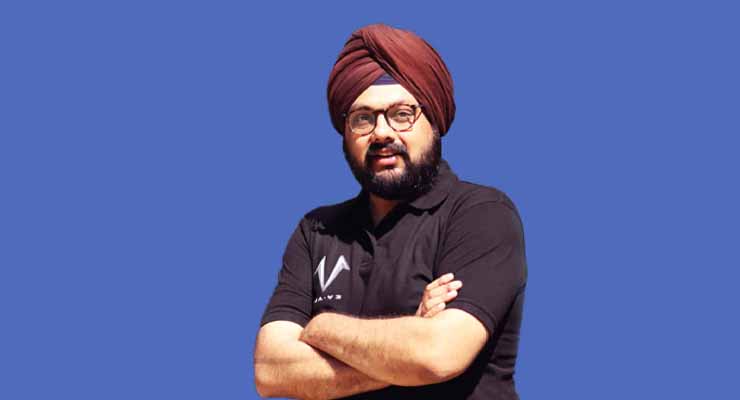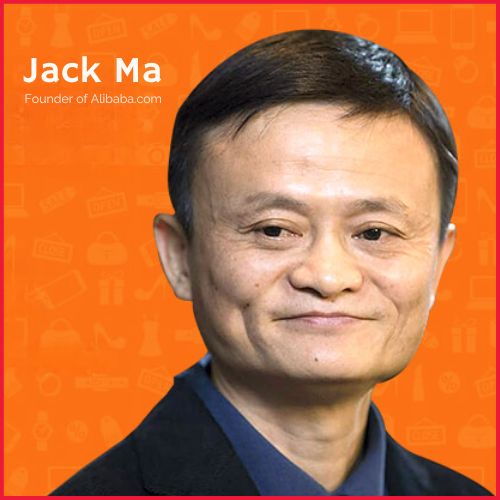With each passing day, it is now becoming increasingly clear that the future of mobility will be defined by electric vehicles (EVs) everywhere. While the recent budget announcement of a battery swapping policy implies that the Indian government is taking a special interest in the EV industry of the country, the industry still remains in its nascent stages. The transition to clean mobility will need the support of significant manufacturing incentives and help with building the charging infrastructure for EVs. But the lack of a conducive environment to support EVs wasn’t holding entrepreneur Inderveer Singh down from innovating.

Inderveer conceptualized EVage, a company that is looking to reimagine and transform the mobility space in India, in 2014. It was a time when there were pretty much no players in the electric four-wheeler segment. After six years of intensive R&D, the company was formally registered in 2019.
Today, EVage is pioneering a revolutionary ‘exoskeleton structure’, which can serve as an affordable, common architecture for SUVs, vans, delivery vehicles, and even trucks. This means that the EV platform allows the company to produce different vehicle models using the same architecture without losing time and money. With the Indian e-commerce industry booming, Inderveer noticed that EVage could address the need of the commercial segment by providing it with EVs for efficient mid-and last-mile delivery. The company is currently working with Amazon India’s Delivery Service Partner.
In January 2022, EVage raised $28 million in seed funding. The funding will help the revolutionary EV startup to complete its production-ready factory located outside of Delhi and scale-up its production.
“We started EVage in 2014 with a clear vision that sustainable transportation is going to be extremely important and a driving force in the future of the country,” said Inderveer Singh, Founder and CEO of EVage.
Business Outreach Magazine had the pleasure of interviewing the clean mobility pioneer recently.
Building an EV from scratch and working on making them happen couldn’t have been easy. Can you tell us a bit about the challenges you have encountered over the years?
When we started in 2014, the ecosystem for EV was under-developed. This required us to work from scratch to allow for a great product to be delivered. Designing and manufacturing a 4W EV is complex, and we wanted to focus on getting the perfect product and technology in the hands of our customers. The journey so far has been extraordinarily fulfilling, and we undertook intensive R&D to develop a forward-looking product in the commercial EV space.
Unlike some players in the industry, we wanted to build the product ground up and not retrofit, which involved us building everything from scratch – the technology, design and engineering amongst others. We built our first prototype in 2019; we spent almost three years testing the product on the road and continuously making incremental changes until we finally got it right. Our customers/end users played a substantial role in this testing phase, giving real-time feedback and thus leading to a co-created market fit product.
Can you shed some light on EVage’s revolutionary modular vehicle platform?

EVage has pioneered a common architecture on which 5-7 different platforms can be built. This makes it highly modular so that we can quickly ramp up to different models using the same architecture without losing time and money.
The company is looking at catering to different customers’ needs and building vehicles that serve multiple purposes.
We believe that there will be a need for building purpose-built vehicles when EVs become more of a trend. For example, an online e-retailer and an online fashion apparel company will need two different kinds of vehicles for efficient deliveries. But the volumes will never justify custom-built vehicles, currently. Although with our architecture, we can churn them out on the same production line without adding new lines.
How can your micro-factories help India and its automotive industry? What will be their role in bringing EVs to the forefront in the near future?
We have conceptualized and invented the technology to use ultra-modern manufacturing principles in a smaller footprint and commercial requirements. Our HQ and first Modular Micro Manufacturing factory are located in Punjab. We hope to have a vast network of manufacturing locations which we will share as finalized in the future.
We see ourselves as one of the pioneers of the EV supply chain in the country, and our unique design features have significantly lowered our dependency on components and suppliers.
Could you give us an idea on the level of localization EVage has been able to achieve in its designs?
EVage believes in localization as far as possible. And the founders are hopeful that critical components such as cells will soon be made locally.
When we began building EVs from the ground up in 2014, China was making components for high-end vehicles, which were used in the developing countries but they did not have the ecosystem to make urban trucks which are suitable for Indian context or other developing countries. EVage did the bulk of the work sourcing locally. Critical components like motor controllers, BMS, even the pack design is localized, though cells continue to be imported.

What is EVage currently working on? Do you have any launches coming up?
We are running our pilot and testing our vehicles with some of the largest players in the e-commerce, logistics and FMCG industry, and we are seeing massive demand from the market for the product.
We will be unveiling our first 4W commercial van and first Modular Micro Manufacturing factory soon and will be able to share more details then. SMEV has a 15% CAGR per annum. We aim to be aggressive in capturing this market and build capacity to augment our vision. We also want to develop a more robust talent pool and invite some of the best minds in the world to join us on our mission to make mobility more sustainable and efficient in the future.
Where do you envision EVage to be in the next five years?
Through EVage, our purpose is to enable sustainable, economical, technologically advanced and efficient mid-and last-mile delivery, impacting not only our customers but also the quality of lives of people across the globe.
We are constantly working towards making a net positive change across people, products and the planet, and therefore at EVage, our core focus has been to bring efficient mobility solutions and impact lives and businesses. With the rapid increase of e-commerce, the commercial mid/last-mile delivery space has snowballed. This has also created challenges enhanced by urbanization, increased pollution, and unsustainable living cycles.
We are focusing on emerging markets, starting with India. The challenges in these markets are different, and we have been laser-focused on understanding the challenges of the mid/last-mile across the value chain, including the delivery personnel making 100+ deliveries a day. This made it essential for us to get the ergonomics, sizing, features, and other aspects right according to Indian conditions.














